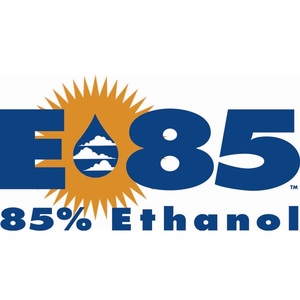Feenstra bill aims to compare E85 FFVs, electric vehicles

October 25, 2021
BY Erin Krueger
Rep. Randy Feenstra, R-Iowa, on Oct. 19 introduced the COST Act, a bill that aims to compel the federal government to compare the financial and environmental costs of electric vehicles and E85 capable flex-fuel vehicles (FFVs).
The bill directs the Comptroller General and the Secretary of Energy to compare the financial and environmental costs of replacing federal government gasoline-powered vehicles with electric vehicles or E85 capable FFVs.
Advertisement
The Comptroller General’s required analysis would include the costs necessary for deployment of infrastructure for each applicable type of electric vehicle or flex fuel ethanol vehicle that it is feasible to be used in the federal fleet nationwide. The Comptroller General would be required to within one year publish those cost analyses online.
The Department of Energy’s required analysis would include lifecycle greenhouse gas (GHG) analysis comparing a conventional gasoline vehicle, an E85 capable FFV, and a battery electric vehicle using the GREET model. The Secretary of Energy would be required within one year to report findings to the House Committee on Science, Space and Technology and the Senate Committee on Commerce, Science and Transportation.
Advertisement
The bill was referred to the House Committee on Oversight and Reform and the House Committee on Energy and Commerce. The bill currently has no cosponsors.
A full copy of the legislation is available on Feenstra’s website.
Related Stories
The USDA has announced it will delay opening the first quarterly grant application window for FY 2026 REAP funding. The agency cited both an application backlog and the need to disincentivize solar projects as reasons for the delay.
Neste and DHL Express have strengthened their collaboration with the supply of 7,400 tons (9.5 million liters) of neat, i.e. unblended, Neste MY Sustainable Aviation Fuel to DHL Express at Singapore Changi Airport starting July 2025.
CoBank’s latest quarterly research report, released July 10, highlights current uncertainty around the implementation of three biofuel policies, RFS RVOs, small refinery exemptions (SREs) and the 45Z clean fuels production tax credit.
The U.S. Energy Information Administration maintained its forecast for 2025 and 2026 biodiesel, renewable diesel and sustainable aviation fuel (SAF) production in its latest Short-Term Energy Outlook, released July 8.
XCF Global Inc. on July 10 shared its strategic plan to invest close to $1 billion in developing a network of SAF production facilities, expanding its U.S. footprint, and advancing its international growth strategy.
Upcoming Events










